This post may contain affiliate links that at no additional cost to you, I may earn a small commission.
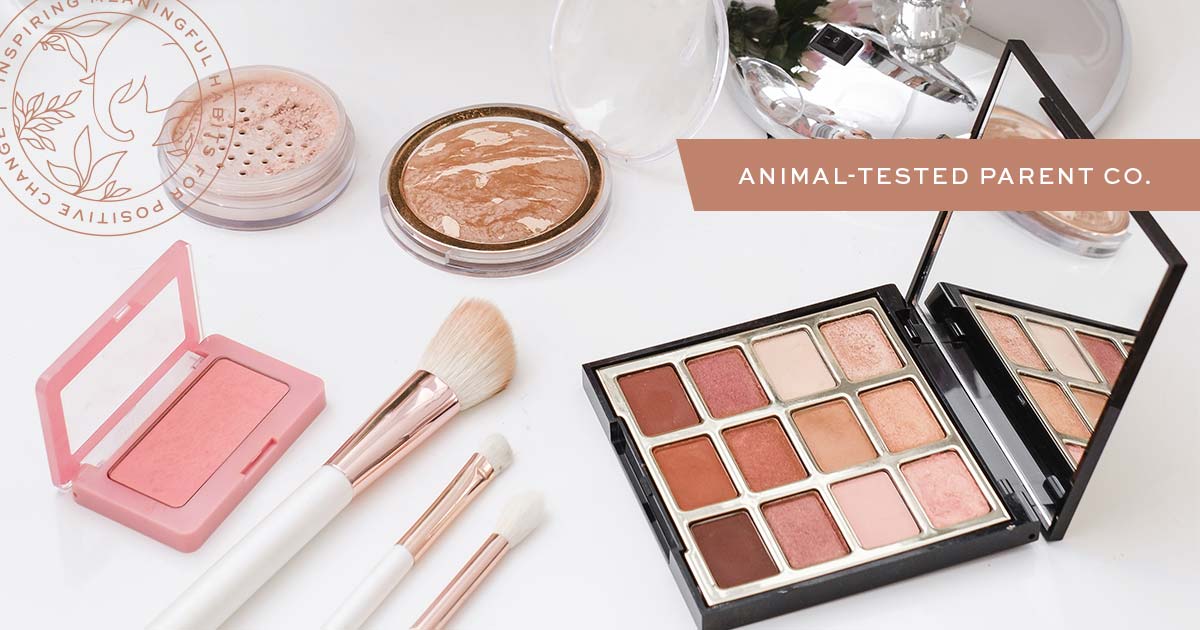
Did you know some cruelty-free brands are owned by a parent company that tests on animals?
As soon as cruelty-free consumers are made aware of this, they aren’t sure whether they should continue to support and buy from these brands or not.
In this post, I share some of the most common reasons why cruelty-free consumers may choose to support or boycott these cruelty-free brands that are owned by non-cruelty-free parent companies. Hopefully, this will give you some insight to consider when deciding for yourself if you should support or boycott these brands.
Non-Cruelty-Free Corporations Acquiring Cruelty-Free Brands
Throughout the years, multinational consumer goods & cosmetics companies like Unilever, L’Oreal, Estee Lauder, Shiseido, and Procter & Gamble (P&G) have acquired and bought several cruelty-free brands.
These corporations admit to allowing their products, ingredients, or formulations to be tested on animals, and they also own other brands that test on animals.
So when these parent companies acquire a cruelty-free brand, that brand’s cruelty-free status is called into question on whether they’ll remain cruelty-free or if the parent company will influence them to no longer be cruelty-free.
The good news is many cruelty-free brands have remained to operate and stay cruelty-free after being acquired by a non-cruelty-free parent company.
The only exception was NARS after being acquired by Shiseido. The formerly cruelty-free brand decided to start selling in China, where all imported cosmetics are required by law to be tested on animals. As a result, NARS lost its cruelty-free status.
But now that these cruelty-free brands are owned by a parent company that does tests on animals, many cruelty-free consumers aren’t sure whether they want to continue to support and buy from them or not.
Examples of Cruelty-Free Brands Owned By Parent Companies Test on Animals
To give you an idea of who owns what, here is a list of some of the most popular animal-testing parent companies and some of the ‘cruelty-free’ brands they own.
Estee Lauder Companies Inc. is NOT cruelty-free, but they own Aveda, Smashbox, The Ordinary, and Too Faced Cosmetics.
Unilever is NOT cruelty-free, and they also own Dermalogica, Hourglass, Living Proof, Murad, Paula’s Choice, REN, Schmidt’s, SheaMoisture, St. Ives, and Tatcha.
L’Oreal is NOT cruelty-free, but they own Garnier, IT Cosmetics, NYX, Pureology, Urban Decay, and Youth To The People.
Procter & Gamble (P&G) is NOT cruelty-free, and they also own Farmacy, Native, and OUAI.
Kendo is a cruelty-free division of LVMH consisting of several cruelty-free brands like Fenty Beauty, KVD Beauty, Marc Jacobs Beauty, and Ole Henriksen, but LVMH is NOT a cruelty-free corporation.
See here for a complete list of who owns what. (Only available to Ko-Fi supporters)
Now that you have a better understanding of which cruelty-free brands are owned by a parent company that tests on animals, here are some of the common reasons cruelty-free consumers choose to support or boycott these brands.
Reasons for Supporting
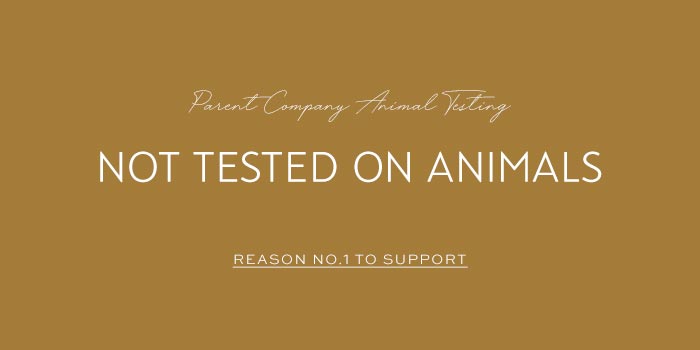
1. They’re still cruelty-free!
You’ll be happy to hear that after being acquired, many cruelty-free brands stay cruelty-free. Many are committed to never allowing their products or ingredients to be tested on animals while maintaining their no-animal testing policies.
Companies that are truly committed to staying and being a cruelty-free brand ensure this is part of the stipulations before signing their company over.
This was especially the case for the cruelty-free skincare brand Drunk Elephant.
During the announcement of Shiseido acquiring Drunk Elephant, the founder, Tiffany Masterson, explained, “We’ll remain cruelty-free. I wouldn’t have signed on for this unless both parties could agree. Fortunately, we wanted the same things; we share like values.”
In addition, some brands have maintained their cruelty-free certification with Leaping Bunny even after being bought out by a non-cruelty-free parent company. These certified cruelty-free brands must continue to meet Leaping Bunny’s standards and are required to show proof of documents that they don’t test on animals anywhere in their supply chain, even after being acquired.
Leaping Bunny certifies cruelty-free brands owned by a parent company that does test on animals but explains, “Leaping Bunny certified companies that were purchased by non-certified parent companies must promise to operate as stand-alone subsidiaries with their own supply chains and must continue to meet the requirements of the Leaping Bunny Standard in order to remain on our list.“
Some of these Leaping Bunny-certified brands include Drunk Elephant, Dermalogica, Hello Products, Mrs. Meyer’s Clean Day, Schmidt’s, Garnier, and Seventh Generation.
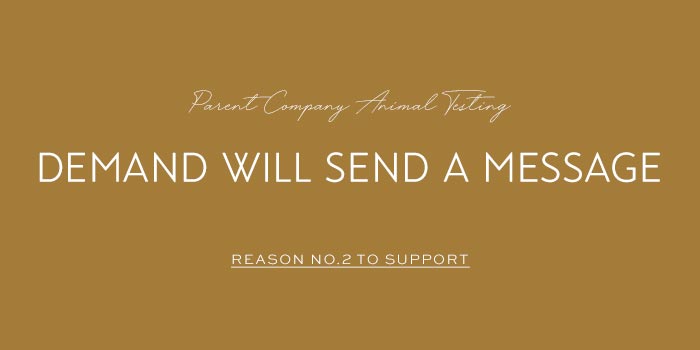
2. Sends a message to the parent company!
Some consumers believe that if we continue to buy from these cruelty-free brands, then it will hopefully send a message to their parent company that there is money to be made in owning and operating a cruelty-free brand.
If these large corporations see that their cruelty-free subsidiary brands are doing financially well, they might be inclined to market more cruelty-free products and brands and maybe just go completely 100% cruelty-free across the board.
We’ve seen this happen with a few of Unilever’s subsidiary brands. Unilever is a corporation that admits to testing on animals when required by law, but they have acquired and owned a number of cruelty-free brands throughout the years, like Dermalogica, Hourglass, REN Skincare, Schmidt’s, and Seventh Generation. Since then, we’ve seen more Unilever brands claiming to be cruelty-free and are PETA-certified cruelty-free, including St. Ives, Dove, and Simple.
This is somewhat similar to vegans buying their groceries at retail stores that also sell meat and dairy products or ordering vegan food at restaurants that are not 100% vegan.
If enough of us continue to buy vegan food products and order vegan dishes off the menu at these non-vegan establishments, we hope the business owners will see a rising demand for vegan options and, as a result, offer more and more vegan products and maybe eventually become 100% vegan.
Note that companies won’t know you’re supporting them because of their cruelty-free values unless you tell them, so send them an email, slide into their DMs, or leave a comment telling them you’re happy they’re cruelty-free and hope their parent corporation will follow suit.
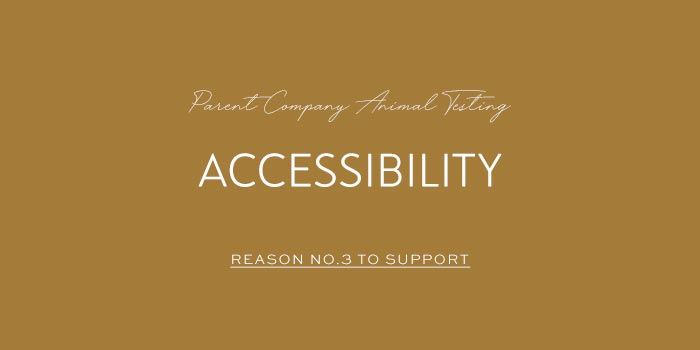
3. Limited Cruelty-Free Options
Cruelty-free consumers in some parts of the world don’t have access to the wide selection of cruelty-free and vegan brands to choose from.
As a result, their local stores may only stock a range of cruelty-free products and brands that are owned by a parent company that tests on animals.
It’s better we buy from one of these cruelty-free brands than from another that consents and pays to have their products or ingredients tested on animals.
We’re always encouraging caring consumers to do their best with what they have. If the best they can do is buy from these cruelty-free brands, then that’s far better than buying from a brand that admits to testing on animals or doing nothing at all.
Reasons for Boycotting
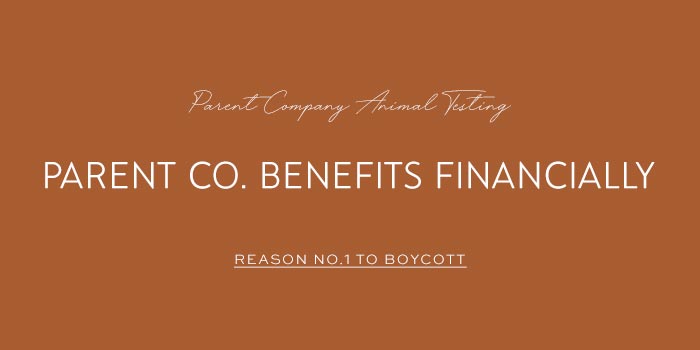
1. Our money is financially supporting the parent company!
When purchasing from these cruelty-free brands, the money from our purchases is essentially going into the pockets of their parent company and financially supporting them.
Some cruelty-free customers have shared their personal shopping experience of how they bought something from NYX Cosmetics and noticed on their bank statements, it said the transaction was to L’Oreal.
Cruelty-free consumers want to make sure they’re supporting and buying from ethical companies, but it can be hard to separate subsidiary brands from their parent companies when they appear to operate under one umbrella.
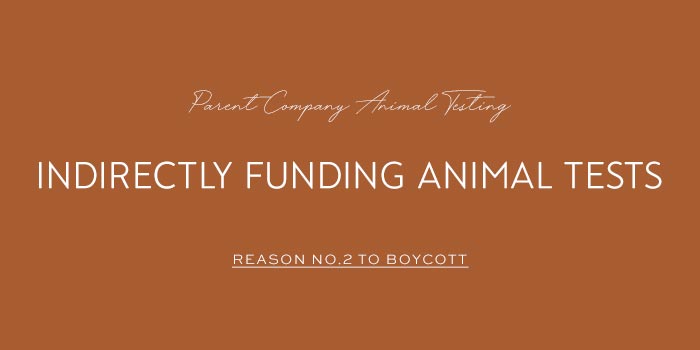
2. We are indirectly funding animal testing!
Some people feel when we buy from any of a corporation’s subsidiary brands that, the money from our purchases will get funneled back to the parent corporation, and then we don’t know where or how that money is being spent by the parent company.
And if the parent company tests on animals, that implies our purchases from one of their cruelty-free brands are indirectly funding more animal tests commissioned by the parent company.
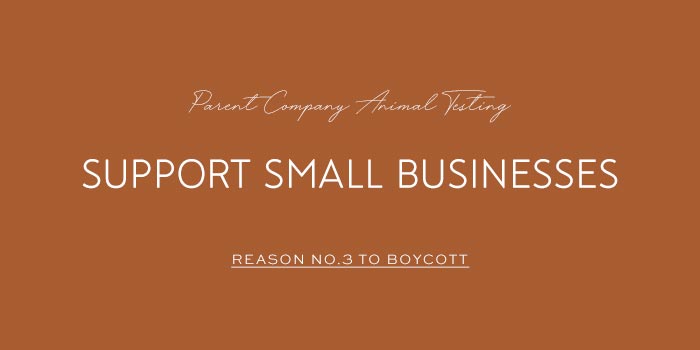
3. Support more independent cruelty-free brands!
Some of these cosmetic corporations have large amounts of resources and marketing budgets, and they’ll manage to do just fine with or without our support.
So instead, we should really buy from independent cruelty-free brands that need our continued support to stay and strive in business.
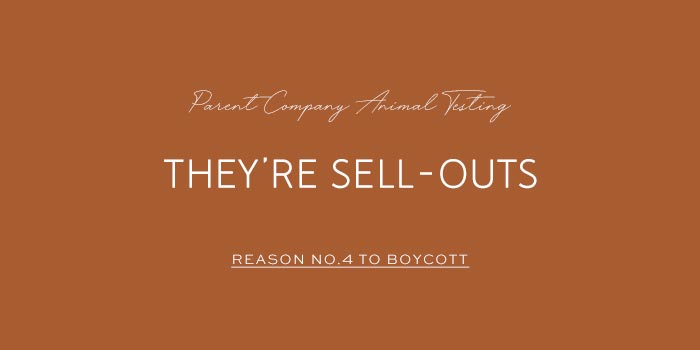
4. They’re sell-outs!
Some believe these brands are sell-outs because they sold their company to a corporation that goes against their values and ethics in exchange for a big payday.
Some have expressed that if these brands did truly care about animals and being cruelty-free, then they wouldn’t have sold their company to a non-cruelty-free parent corporation.
And by doing so, we shouldn’t continue to support these brands, and hopefully, it will also discourage other cruelty-free brands from selling out too.
Ultimately, It’s Your Decision
We want to encourage you to make your own decision on whether you want to support these brands or not. Consider which of these points speak to you and are aligned with your beliefs. Also, know that it’s okay if you change your mind as you continue on your cruelty-free journey. We’re all just learning and trying our best here.
More Resources:
- 💗 Know The Diff: Cruelty-Free vs. Vegan
- 🐇 Who To Trust? PETA or Leaping Bunny
- 🌱 Beginner’s Guide: Vegan Beauty Basics
- 🇨🇳 To Know: Understanding China’s Animal Testing Laws
- 🔎 Use This: Checklist To Know When A Brand is Truly Cruelty-Free







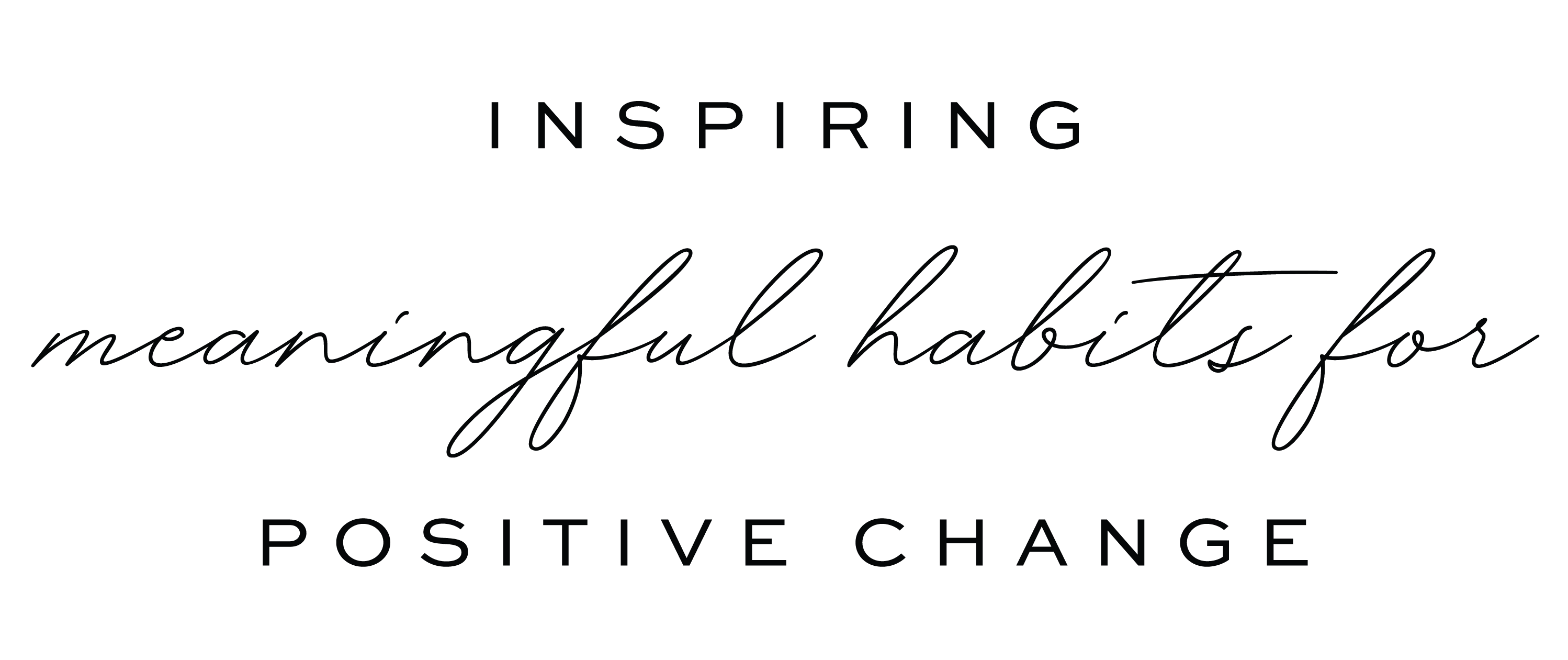
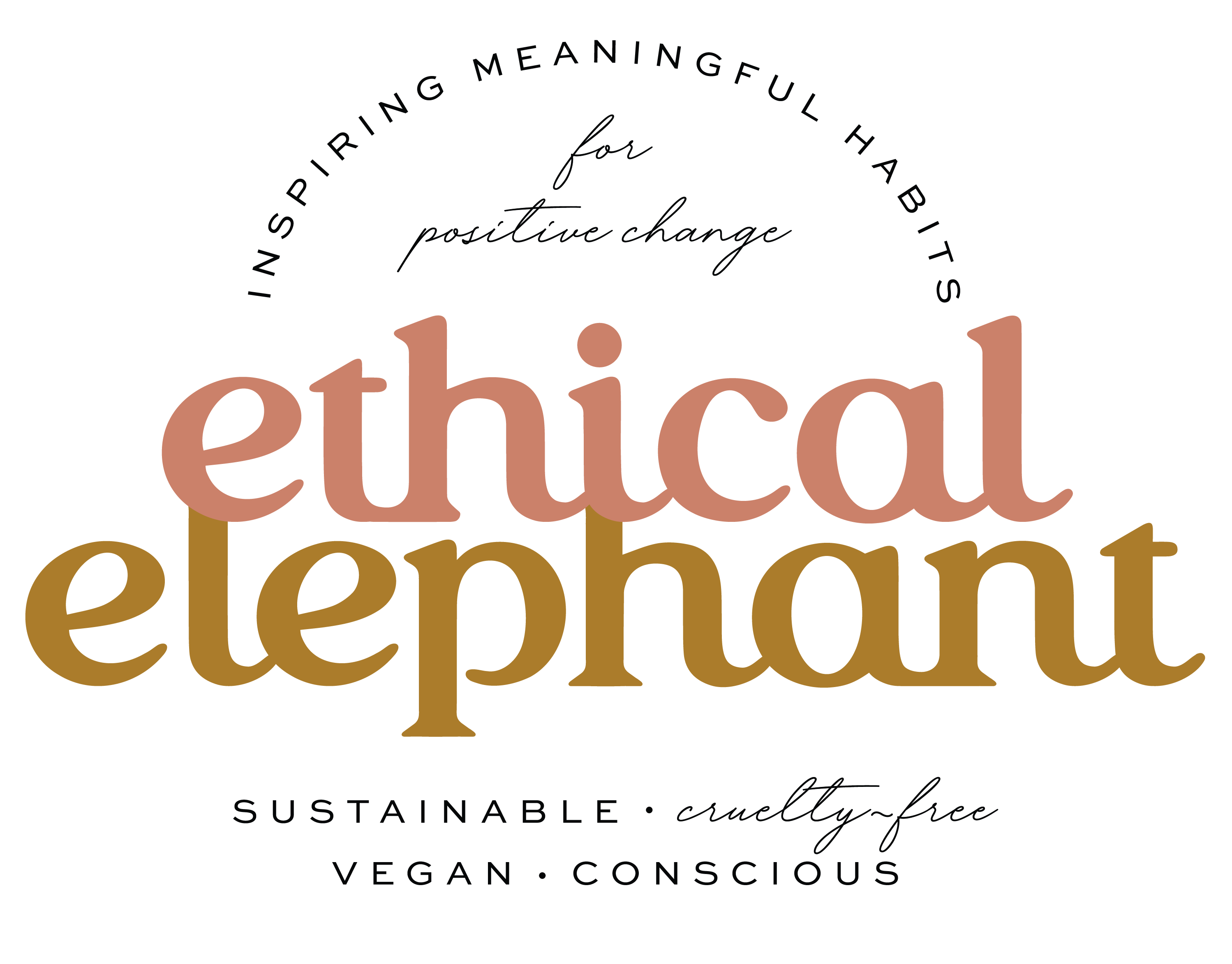
37 thoughts on “Buy or Boycott? Cruelty-Free Brands Owned by Parent Companies That Test on Animals”
Great article, Vicky. I look at it this way: the “business world” is a lot more complex than parent companies and companies they own. All big brands work with a ton of retailers, distributors, and other companies. Walking into Sephora and purchasing from Hourglass but not from Tarte because you “don’t want to finance animal testing” is a bit of an arbitrary line.
Business is business and an independent brand that claims they wouldn’t sell to L’Oreal if they offered them millions and millions is full of crap. Building a company from scratch and reaching a point where it’s successful enough to be sold is hard work. Think of the people behind the small companies that worked their butts off.
I keep seeing hate for those that have “realistic” views about this topic, and it pains me. Animal testing is what we’re fighting here. Our goal is for GOVERNMENTS to outlaw the practice, because businesses operate outside of ethics. There shouldn’t be any hate within the cruelty-free community.
Kinda went off on a tangent here! Good post! 🙂
I feel ya, Suzi! It’s such a touchy subject because we should all be allowed to have our own opinions about the issue and also decide on our own if we want to buy from these brands or not. And it’s heartbreaking when I read comments from people who are attacking or “shaming” others for wanting to buy these ‘cruelty free’ brands. We should be happy and show some words of encouragement to one another for even knowing what cruelty-free means!
You made such a fantastic point about “businesses operates outside of ethics” and how even independent companies dream to be acquired from a huge company even if its L’Oreal or Estee Lauder!
It’s like if you make and sell your own organic and cruelty free skincare products and Nordstrom, Holt Renfrew, or Neiman Marcus wants to carry your products but only on an exclusive basis. You’re going to take that opportunity without any hesitation even though they may sell fur, leather, and all sorts of other capitalist crap you don’t personally buy into. It’s strictly a business decision.
This is a great post, I really enjoyed the balanced view and arguments for each side. Often times this subject causes people to get judgemental and harsh.
I for one, am for supporting cruelty-free brands even if they are owned by larger non-cruelty-free brands. I think that it’s great to show those companies that cruelty-free can be profitable too!
Thank you again for a great post 🙂
Amber
amberbutbetter.blogspot.com
Hi Vicky really enjoyed your article! 🙂
i have my own blog and this is something i am quite concerned of bringing up as it is such a devide of opinons. i personally believe that companies like urban decay, nyx,nars and others that ARE cruelty free (even though owned by a parent company that does test on there products) we should support them regardless, as like you said they are still a cruelty free brand and are still fighting against animal testing regardless. i dont think i should turn these make up brands down 🙂
Hey Sophie! Thanks so much for reading =)
I know what you mean, especially when you have your own blog and other people tend to get very vocal about this topic in the comment section. I like your perspective on the issue and I’m with you on how we just need to support one another and the brands that are doing their part on fighting animal testing for cosmetics! =)
When it comes to L’Oreal, they made the commitment to not test on animals unless regulated by the country (I.E. China for products, and US for sunscreen). The tests however are not conducted by L’Oreal themselves. Apparently, they also work with the Chinese regulatory to try and bring about change (as mentioned on their website. Thoughts?
You bring up a great point, Chantel =) and it’s true that some companies feel that they can help change things by working on the inside. L’Occitane is another great example of a brand that feels they can help influence change by selling their products in China and thereby working closely with key decision makers and hopefully help put an end to their animal testing requirements. L’Occitane actually has the support from Humane Society International, one of the largest animal rights organization.
My personal opinion on this matter is that I think other means can be done to help end animal testing and if a company chooses to sell in China and therefore must have their products tested on animals, but AT THE SAME TIME, saying they’re totally against it and care deeply about animals is completely hypocritical.
It’s almost like saying I want to help raise awareness about how smoking is associated with lung cancer by smoking 3 packs of cigarettes a day. And while I’m out there smoking, I will educate and inform other people about the dangers of smoking and lung cancer.
It’s definitely a unique approach but not one that I would support likewise with L’Oreal and L’Occitane. I feel that there are better means to bring about change without having to sell their products in China. Also, it’s pretty tough to trust who is ACTUALLY working for change because I’ve heard from so many companies saying the same thing but when I asked for specifics about what they are doing, none of them got back to me. So, I’d be careful about what companies are saying because honestly, they’re just trying to sell us their products.
How can we write to these major companies and ask them to stop testing on animals?